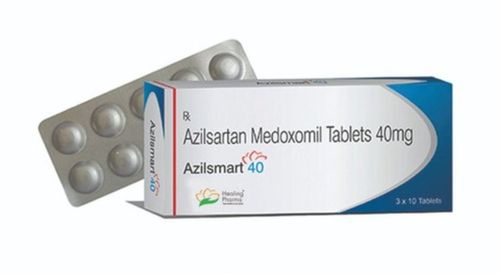This is an automatically translated article.
Plendil Plus is a drug to treat high blood pressure from the company AstraZeneca. Through this article we will know more specific information about the drug Plendil Plus.
1. What is Plendil Plus?
Plendil Plus is a prescription medicine, taken orally. The drug is a combination of two main ingredients, Felodipine 5mg and 47.5mg Metoprolol succinate corresponding to 50mg Metoprolol tartrate. Medicines that lower blood pressure.
Plendil Plus is prepared as a round, 2-convex, apricot-colored extended-release tablet, engraved with the letter A/FG, 10mm in diameter.
Packaging specifications for 30 tablets.
2. When is Plendil Plus used?
Plendil Plus is indicated for hypertensive patients when monotherapy with β-blockers or dihydropyridine calcium channel antagonists is not effective enough.Pharmacodynamics:
Felodipine is a selective vascular calcium channel blocker, commonly used in the treatment of hypertension and stable angina. Metoprolol is a β-1 selective β-blocker, that is, it inhibits β-1 receptors at doses much lower than those needed to block β-2 receptors. The mechanism of action of these two active ingredients is complementary (felodipine reduces extrinsic resistance and metoprolol reduces cardiac output), so Plendil Plus has a more pronounced antihypertensive effect than when used as monotherapy. individual drug ingredients.
Pharmacokinetics:
Felodipine:
The bioavailability of Felodipine is about 15%. The plasma protein binding is about 99% and is mainly bound to the albumin fraction. Felodipine is extensively metabolized by the liver. Approximately 70% of an administered dose of felodipine is excreted as metabolites in the urine, with the remainder being excreted in the feces. Metoprolol:
After oral administration Metoprolol succinate is completely absorbed. The bioavailability of metoprolol after a single oral dose is about 50%. Bioavailability is reduced by 20-30% with extended-release formulations compared with conventional tablets. However, it has been shown to be unimportant in terms of clinical efficacy. Metoprolol is low in plasma protein (5-10%). Metoprolol is metabolized in the liver by oxidation. Three major metabolites have been identified and none have clinically important β-blocker activity. More than 95% of the dose was recovered in the urine. Normally about 5% of a dose is excreted in the urine as unchanged drug, the remainder as metabolites. Effects:
Felodipine: reduces arterial blood pressure by the mechanism of reducing peripheral vascular resistance. Felodipine has no direct effect on myocardial contractility or conduction at therapeutic doses due to its high selectivity on arteriolar smooth muscle; Has a diuretic effect, mild sodium excretion and does not cause fluid retention. Metoprolol: is a selective β-adrenergic antagonist. The effect is not absolute on β-1 adrenergic receptors located mainly in the myocardium and at high doses also inhibits β-2 adrenergic receptors located mainly in the bronchial & vascular musculature. Metoprolol reduces or inhibits the cardiac sympathomimetic effects of catecholamines (which are released during psychophysiological shock).
3. What should be noted when using Plendil Plus?
3.1. How to use & dosage How to take Plendil Plus:
Plendil Plus is taken orally. The drug is made in the form of extended-release tablets, so patients will take it once a day in the morning. The drug must be swallowed with liquid (water), not broken, crushed or chewed. The medicine can be taken on an empty stomach or with a light meal.
Dosage of Plendil Plus:
Dosage varies from person to person. Usually the starting dose is based on the patient's previous experience with β-blockers or calcium antagonists.
Adults: take 1 tablet of Plendil Plus 5/50 mg per day. The dose can be increased to 2 Plendil Plus tablets per day as needed. Elderly people take 1 tablet of Plendil Plus, 1 time / day. Can be increased to 2 Plendil Plus tablets per day if necessary. Plendil Plus should not be used in children because clinical data are not available. Dose adjustment:
No dose adjustment is required for patients with impaired renal function: Impaired renal function has no effect on plasma concentrations. No dose adjustment is necessary in patients with impaired liver function such as cirrhosis because metoprolol has low protein binding (5-10%). In case of very severe liver function damage, the dose should not be higher than 1 tablet of Plendil Plus/day. When using the drug, the patient should avoid stopping the drug suddenly. A reduced dose regimen as directed by the physician is required and during this period close monitoring is required in patients with known ischemic status because the risk of myocardial infarction and sudden death may increase with discontinuation. using Plendil Plus or other β-blockers.
3.2. Contraindications Plendil Plus Known hypersensitivity to any component of the drug or β-blockers, other dihydropyridines. Pregnant. Patients with acute myocardial infarction. Unstable angina. Heart valve obstruction, atrioventricular conduction block - 2nd and 3rd degree. Cardiac outflow obstruction. Patients with unstable decompensated heart failure, patients on continuous or intermittent therapy with β-receptor agonists. Symptomatic bradycardia. Do not use in patients with sinus node insufficiency syndrome. Cardiac shock. People with severe peripheral vascular disease, threatening necrosis. 3.3. Drug interactions when taken with Plendil Plus When taking Plendil Plus with some drugs can increase or decrease the therapeutic effect of this drug. Some drugs interact with the ingredients of Plendil Plus:
Carbamazepine, phenytoin, phenobarbital and rifampicin. azole antifungals (itraconazole, keloconazole), macrolide antibiotics (erythromycin); antiretroviral/protease inhibitor (Ritonavir). Tacrolimus. Cyclosporin. Cimetidine. Barbiturates. Antiarrhythmic drugs (Quinidine, propafenon...); Antihistamines (Diphenhydramine...); Antidepressants (paroxetine, fluoxetin, sertraline...); Histamine-2 receptor antagonists; Antipsychotics; COX-2 inhibitors (Celecoxib...); Antifungal (Terbinafine...). Verapamil (causes hypotension). 3.4. Plendil Plus can cause hypotension like other antihypertensive drugs, can cause myocardial ischemia in susceptible patients.
For patients with bronchial asthma, appropriate bronchodilator therapy must be given concurrently.
Therapeutic use of Plendil Plus may affect carbohydrate metabolism bypassing signs of hypoglycemia, but the risk is lower than with the use of selective β1-blockers in the usual dosage form and also much lower than non-selective β-blockers.
Do not use Plendil Plus in patients with heart failure without concomitant use of heart failure medications.
For patients with pre-existing atrial-ventricular conduction disturbances that may lead to atrioventricular conduction obstruction.
Use caution when prescribing Plendil Plus in patients with severe acute metabolic acidosis.
Patients treated with Plendil Plus should not receive intravenous verapamil.
The bradycardia is clearly progressive, it is necessary to reduce the dose of Plendil Plus or gradually stop the drug. Plendil Plus may increase or worsen symptoms of peripheral arterial circulation.
Limit the combination of Plendil Plus with strong CYP3A4 inhibitors and inducers in treatment.
When using Plendil Plus in patients with pheochromocytoma, concurrent use with an α-receptor blocker should be considered.
Inform the anesthesiologist before surgery about the patient's use of Plendil Plus. β-blocker therapy should not be discontinued in patients undergoing surgery.
Taking β-blockers may make it more difficult in patients to treat anaphylaxis.
Use selective β1-blockers with caution in patients with Prinzmetal's angina.
Plendil Plus contains lactose, so it should not be used in patients with hereditary galactose or glucose-galactose malabsorption.
3.5. How does Plendil Plus affect the ability to drive and use machines? Dizziness and fatigue may occur during treatment with Plendil Plus, which should affect driving or operating machinery. Patients must self-assess whether the level of alertness when using Plendil Plus is sufficient to drive or operate machinery.
3.6. Pregnancy & Lactation Do not use Plendil Plus during pregnancy.
Felodipine is secreted into breast milk. However, taking the drug at therapeutic doses for lactating women does not affect the nursing infant.
β-blockers may cause undesirable effects such as bradycardia in the fetus, neonate and nursing infant. However, the amount of metoprolol absorbed in breast milk is unlikely to cause any significant β-blocking effect in the infant if the mother is prescribed metoprolol at therapeutic doses.
3.7. Undesirable effects Common side effects: headache, flushing, dizziness, ankle edema.
In addition, the drug can cause fatigue, dizziness, tachycardia, excessive lowering of blood pressure, exacerbation of angina.
Allergic reactions such as itching, rash, urticaria may occur. The drug should be stored at a temperature not exceeding 30 degrees Celsius.
Plendil Plus is a product only sold when prescribed by a doctor, so the above information is for your reference.
Vinmec International General Hospital is one of the hospitals that not only ensures professional quality with a team of leading medical professionals, modern equipment and technology, but also stands out for its examination and consultation services. comprehensive and professional medical consultation and treatment; civilized, polite, safe and sterile medical examination and treatment space.
Please dial HOTLINE for more information or register for an appointment HERE. Download MyVinmec app to make appointments faster and to manage your bookings easily.













